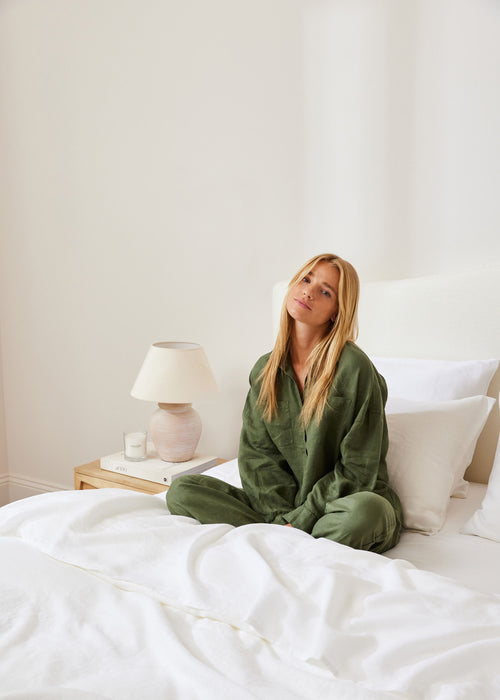
This Is the Real Reason You Can’t Stop Staying up Late
If you keep trading sleep for “me time,” you might be caught in a pattern you don’t even realise you’re in.
It can often feel like there aren't enough hours in the day to fit in everything we would like. With our increasingly busy schedules, it can be tricky to prioritise and find the hours for personal time outside of work and social obligations.
It's not uncommon to wrap up a long day, realise we need to be awake in 8 hours, but still have a strong desire to watch Netflix for an extra couple of hours. And that's exactly what we end up doing, even if we know we should sleep.
Sound familiar? You might be someone dealing with a phenomenon called 'Revenge Bedtime Procrastination', otherwise known as 'Sleep Procrastination'.
The term 'bedtime procrastination' was popularised a 2014 study from the Netherlands aimed to answer the question of why people delayed their bedtime on purpose, even when they are tired. It's thought that the "revenge" prefix was added because of the brutal 996 working hour system practiced by some companies in China, whereby employees work from 9:00 am to 9:00 pm, six days per week.
In an interview with The Washington Post, behavioural scientist Wendy Troxel explained that an increase in revenge bedtime procrastination has been “exacerbated during covid, when people are sort of vengeful about ‘me time,’ and that ‘me time’ only occurs when they know they should be going to bed.”
Is it a problem and what can you do about it?
Leisure time is an important component of psychological health and wellbeing, but sleep deprivation can override this and negatively affect our physical and mental health as well. A lack of sleep can result in an even stronger desire to have downtime because we aren't in a good a frame of mind during the day and need to work more because we aren't being as productive. It's a tricky cycle and one that's very easy to fall into.
So where does that leave us?
The ultimate goal would be to try integrate activities you enjoy into your daily routine, rather than just tacking them on when you’re about to go to bed.
What could be more realistic for you is:
- Limiting screen-time to just one episode of the show you're currently streaming and turning off 'auto play'.
- Better planning your day to take advantage of the hours you do have.
- Avoiding alcohol or caffeine late in the afternoon or evening.
- Better utilising the time you have on weekends and not sleeping in.
- Meditating or practising yoga as a way to unwind and encourage you to sleep.
- Establishing a clear bedtime routine that will encourage you to sleep.
- Speaking to a healthcare professional about how to better manage your stress levels.
This article is intended for informational purposes only and is not a substitute for individualised health advice. If you are concerned about your health and well-being, please speak to your GP, who will advise on the correct treatment plan. You can also call Lifeline 24/7 for mental health support on 988.
Sleep Soundly
Enjoyed This?
Discover more tips for healthy sleep.














